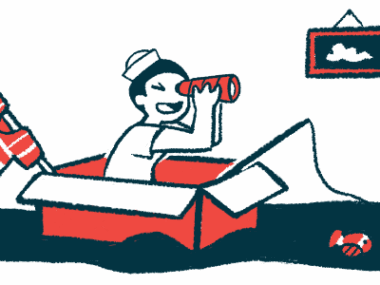Up to 100 Free Zolgensma Treatments Going Out Worldwide in 2020 Under Access Program
Written by |

Novartis plans to give up to 100 doses annually of Zolgensma, its costly gene therapy for spinal muscular atrophy (SMA), free-of-charge to eligible young children outside the U.S. with this progressive, neuromuscular disease.
These treatments come under a global managed access program (MAP) the company runs for people with serious and life-threatening illnesses, and limited treatment options in their home country.
It launches next month, aiming to improve SMA care in countries where Zolgensma, which carries a $2.1 million list price in the U.S., is not yet approved. Technically, this means any country other than the United States, which approved the one-time intravenous infusion in May for children up to age 2.
Eligible children for MAP access are those also under age 2, with a genetically confirmed SMA diagnosis, and regardless of disease type, age at symptom onset, or previous treatment.
Some 50 doses will be given out through June, with a total of 100 doses planned by the close of 2020, Novartis said in a release provided to SMA News Today. Depending upon need and manufacturing capacity, more doses will be added to the program on a rolling, six-month basis. Novartis hopes to add two production facilities next year to the one currently licensed.
Priority in distributing Zolgensma goes to places “where it has been approved, is pending regulatory approval and to clinical trials,” the release said. But AveXis, which developed the gene therapy and is now part of Novartis, “understands families grappling with an SMA diagnosis are in need of promising therapies.”
The two companies are “pursuing” regulatory approval for Zolgensma in almost 36 different countries.
AveXis also issued a statement to the SMA community on this program, saying it was “anchored in principles of fairness, clinical need and global accessibility,” with a goal of equitable distribution “of a finite number of doses that doesn’t favor one child or country over another.”
It intends for the program to be “a long-term commitment.”
Beginning on Jan. 2, physicians may submit a treatment request on their patients’ behalf using this email address.
Once medical eligibility is confirmed, health authority approval must be obtained in the country where the patient will be treated. An independent party will conduct bi-weekly, blinded draws among the requests starting in February. Any child not selected for treatment in a round will automatically be placed in the pool for the next selection.
Submissions from countries that approve Zolgensma for commercial use, however, will no longer be accepted.
“Recognizing that the program will not be a solution for all families in all countries, we … are working hard to increase supply and to design sustainable and ethical solutions to expand global access on an ongoing basis, including seeking mandatory health authority approval for use of the global MAP from each patient’s home country,” AveXis said in its statement.
The United Kingdom-based patient advocacy organization TreatSMA applauded Novartis’ initiative, but also criticized what it considered a “lottery” on its website, and questioned encouraging people to try for this gene therapy when Spinraza (nusinersen) — which also treats all types of SMA — is approved for use in Europe and the U.K.
Access to this Biogen treatment can be limited across the U.K., however, because it is not part of the national health systems that subsidize medicines in all the countries that make up the United Kingdom. Only Scotland provides reimbursement to SMA patients of any age.
“[W]e are yet to be convinced that a health lottery is an appropriate way of meeting the unmet medical needs in this severe disease,” TreatSMA said. “We note that there is no head-to-head data that would prove superiority of either Spinraza or Zolgensma in any patient group, while all children eligible for the Zolgensma programme already have access to Spinraza in our country.”
Under an agreement reached in May, England provides Spinraza at low or no cost to young children with type 1 SMA.
TreatSMA plans to contact patient groups and SMA specialists worldwide about this “interesting programme” with a goal of arriving at a final decision.
Rajdeep Patgiri and his wife, who traveled from London to Ohio to get Zolgensma for their daughter, Tora, who has SMA type 2, disagreed with the group’s position.
“Short of giving it to everybody under 2 years of age for free, this is the second fairest option. And the first best option is not feasible,” Patgiri said, sharing with SMA News a letter he sent in response. “[A] large part of the world have access to not a single treatment. Even in a country like Russia, Spinraza is now ‘approved’ — which only means if you have the money, you can buy it.
“Any chance of treatment, even tiny, is better than the zero chance of treatment that they face now,” Patgiri wrote.
Novartis anticipates that regulatory decisions regarding Zolgensma will be issued for Europe and Japan next year. Early access programs are in place in several countries, including France, Germany, and Portugal.



